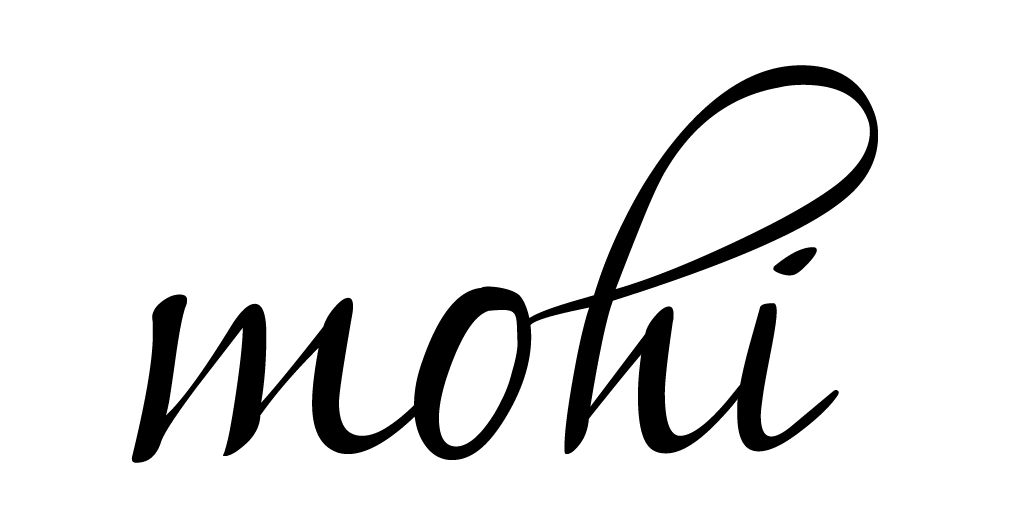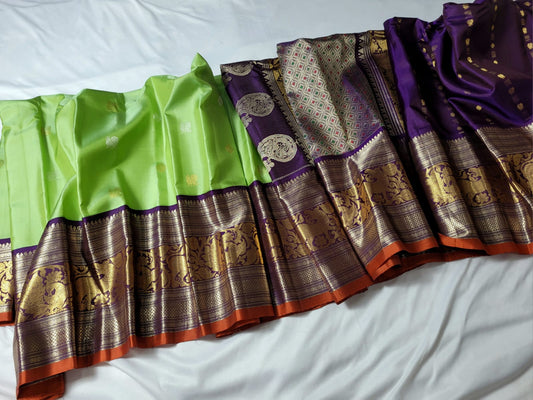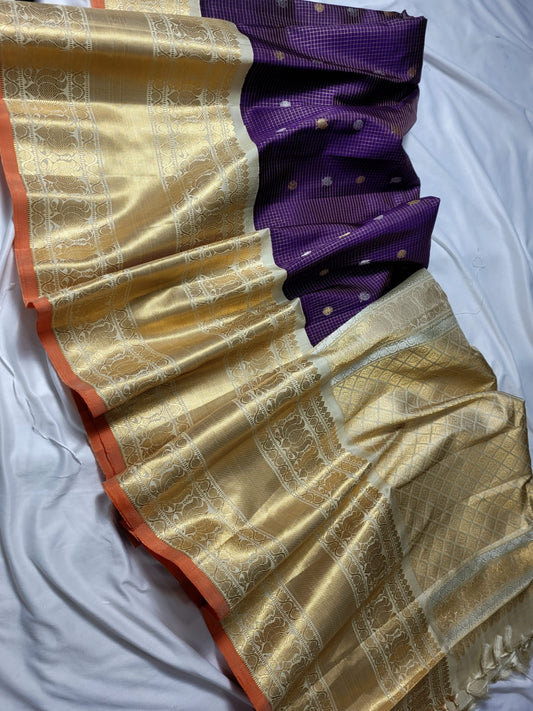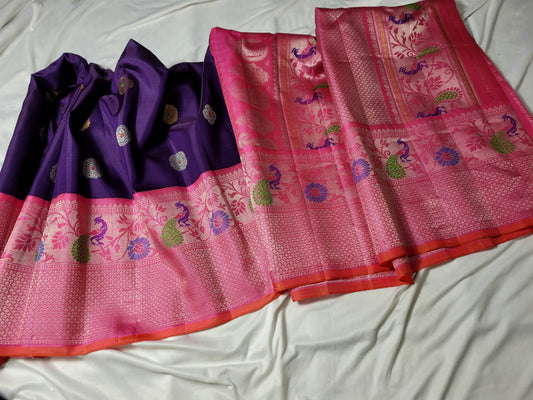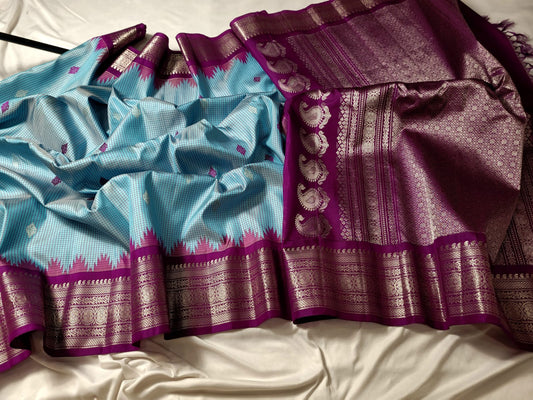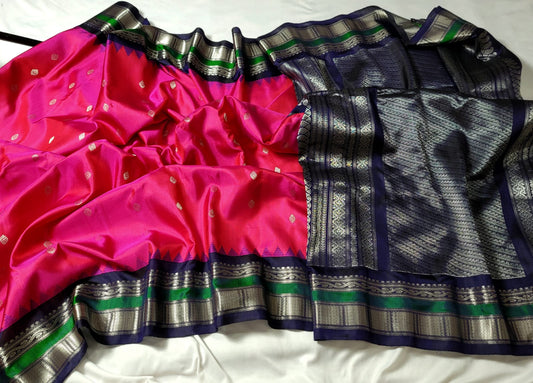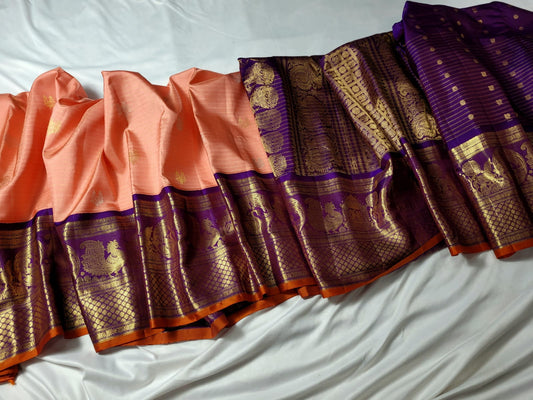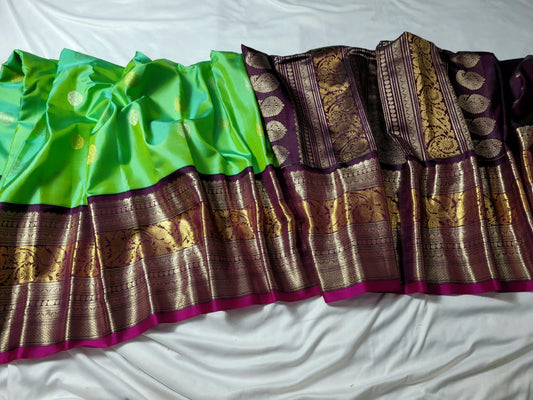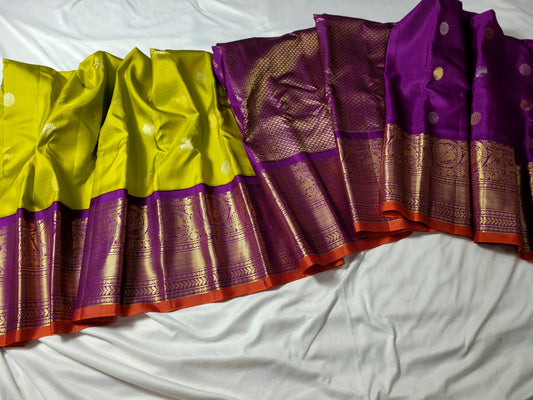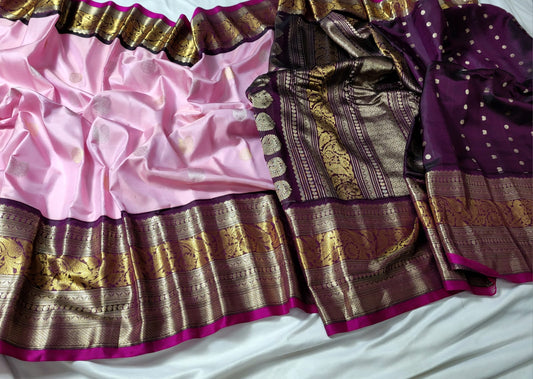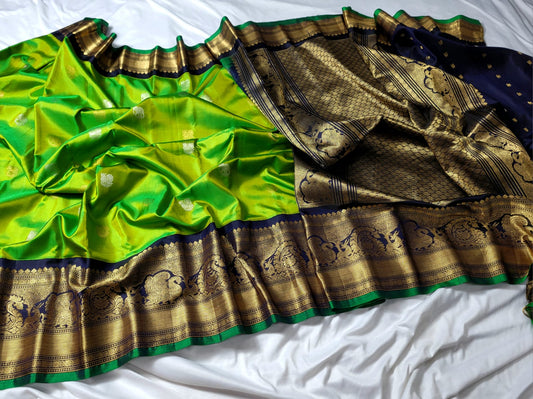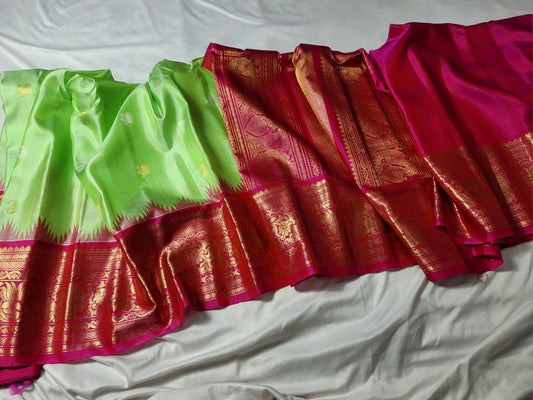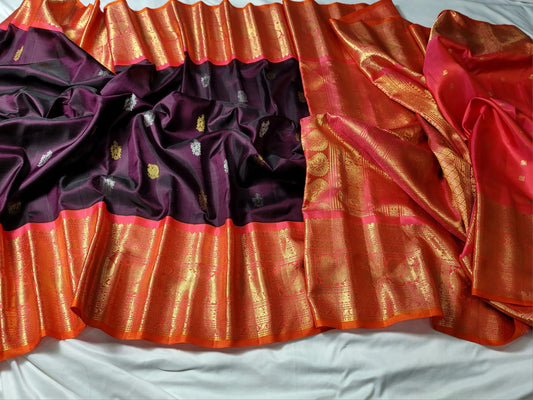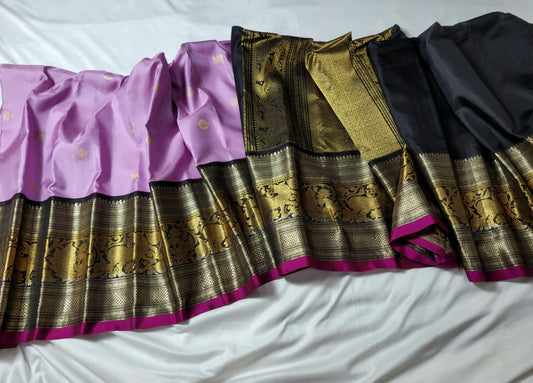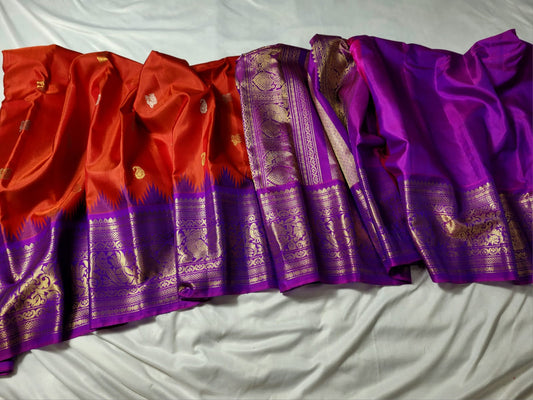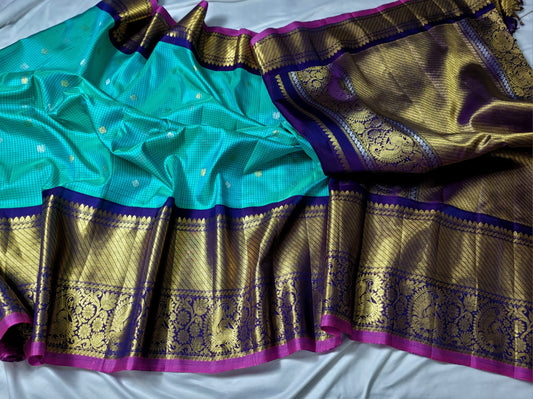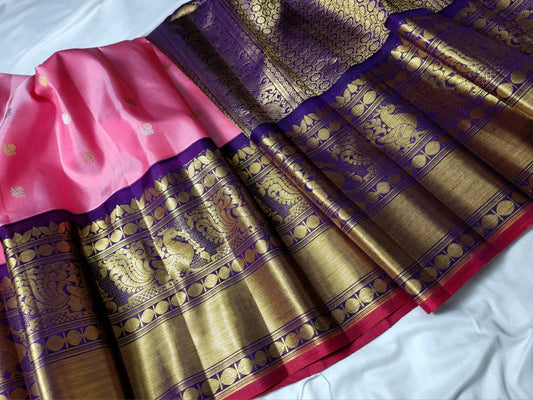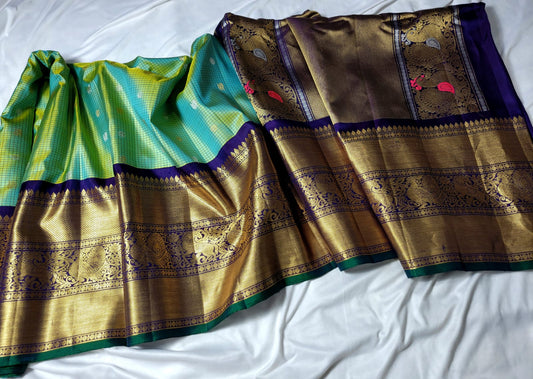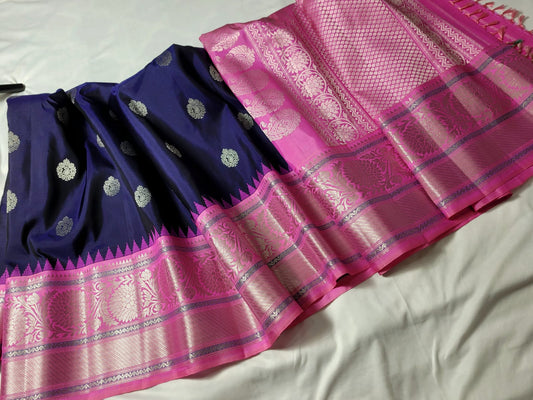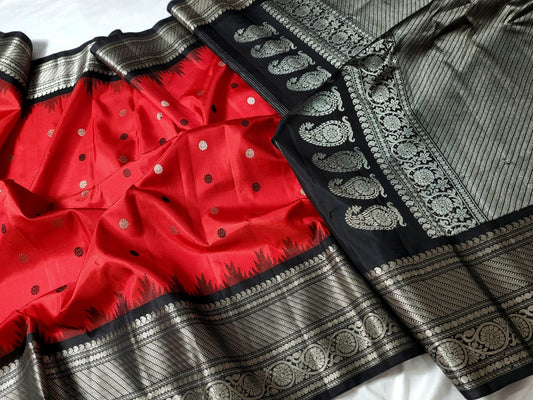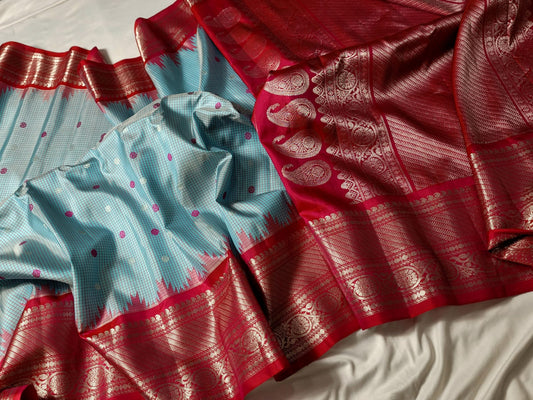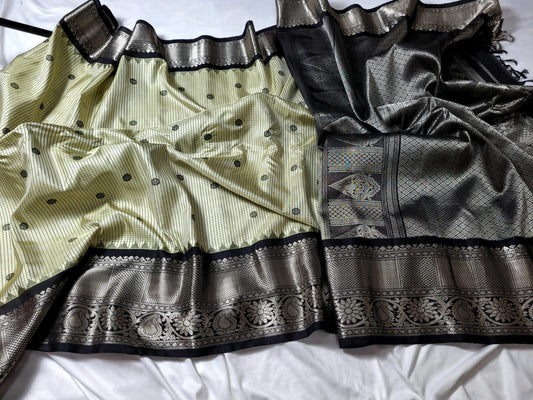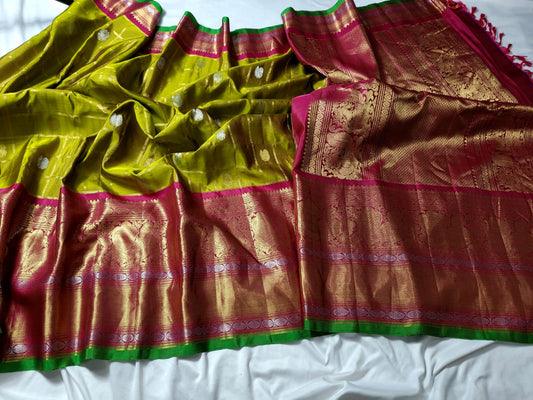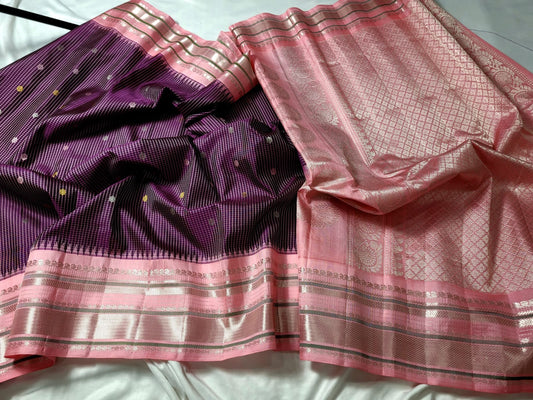-
Green with Dark Blue Pallu Pure Gadwal Pattu handloom Saree
Regular price Rs. 28,684.00 INRRegular priceUnit price perRs. 42,420.00 INRSale price Rs. 28,684.00 INRSale -
Purple with Ivory Gold Pallu Pure Gadwal Pattu handloom Saree
Regular price Rs. 35,445.00 INRRegular priceUnit price per -
Dark Blue with Baby Pink Pallu with Peacock Motifs Pure Gadwal Pattu handloom Saree
Regular price Rs. 35,827.00 INRRegular priceUnit price per -
Blue with Purple Pallu Pure Gadwal Pattu handloom Saree
Regular price Rs. 32,200.00 INRRegular priceUnit price per -
Magenta with Dark Blue Pallu Pure Gadwal Pattu handloom Saree
Regular price Rs. 29,334.00 INRRegular priceUnit price per -
Orange with Dark Blue Pallu Pure Gadwal Pattu handloom Saree
Regular price Rs. 28,684.00 INRRegular priceUnit price perRs. 42,420.00 INRSale price Rs. 28,684.00 INRSale -
Green with Wine Pallu Pure Gadwal Pattu handloom Saree
Regular price Rs. 28,684.00 INRRegular priceUnit price perRs. 42,420.00 INRSale price Rs. 28,684.00 INRSale -
Mehendi Green with purple Pallu Pure Gadwal Pattu handloom Saree
Regular price Rs. 28,684.00 INRRegular priceUnit price perRs. 42,420.00 INRSale price Rs. 28,684.00 INRSale -
Baby pink and Wine Pallu Pure Gadwal Pattu handloom Saree
Regular price Rs. 28,684.00 INRRegular priceUnit price perRs. 42,420.00 INRSale price Rs. 28,684.00 INRSale -
Green with Dark Blue Pallu Pure Gadwal Pattu handloom Saree
Regular price Rs. 28,684.00 INRRegular priceUnit price perRs. 42,420.00 INRSale price Rs. 28,684.00 INRSale -
Lime Green with Maroon Pallu Pure Gadwal Pattu handloom Saree
Regular price Rs. 28,684.00 INRRegular priceUnit price perRs. 42,420.00 INRSale price Rs. 28,684.00 INRSale -
Wine Colored saree with Orange Pallu Pure Gadwal Pattu handloom Saree
Regular price Rs. 28,684.00 INRRegular priceUnit price perRs. 42,420.00 INRSale price Rs. 28,684.00 INRSale -
Magenta with Black Pallu Pure Gadwal Pattu handloom Saree
Regular price Rs. 28,684.00 INRRegular priceUnit price perRs. 42,420.00 INRSale price Rs. 28,684.00 INRSale -
Red with Violet Pallu Pure Gadwal Pattu handloom Saree
Regular price Rs. 28,684.00 INRRegular priceUnit price perRs. 42,420.00 INRSale price Rs. 28,684.00 INRSale -
Turquoise with Dark Blue Pallu Pure Gadwal Pattu handloom Saree
Regular price Rs. 35,445.00 INRRegular priceUnit price per -
Pink with Dark Blue Pallu Pure Gadwal Pattu handloom Saree
Regular price Rs. 35,445.00 INRRegular priceUnit price per -
Green with Dark Blue Pallu Pure Gadwal Pattu handloom Saree
Regular price Rs. 35,445.00 INRRegular priceUnit price per -
Blue with Baby Pink Pallu Pure Gadwal Pattu handloom Saree
Regular price Rs. 32,200.00 INRRegular priceUnit price per -
Red with black Pallu Pure Gadwal Pattu handloom Saree
Regular price Rs. 32,200.00 INRRegular priceUnit price per -
Blue with Red Pallu Pure Gadwal Pattu handloom Saree
Regular price Rs. 32,200.00 INRRegular priceUnit price per -
Ivory with Black Pallu Pure Gadwal Pattu handloom Saree
Regular price Rs. 32,200.00 INRRegular priceUnit price per -
Mehendi Green with Maroon Pallu Pure Gadwal Pattu handloom Saree
Regular price Rs. 32,200.00 INRRegular priceUnit price per -
Purple with Baby pink Pallu Pure Gadwal Pattu handloom Saree
Regular price Rs. 29,334.00 INRRegular priceUnit price per
Quality Check Process
Client Love
-
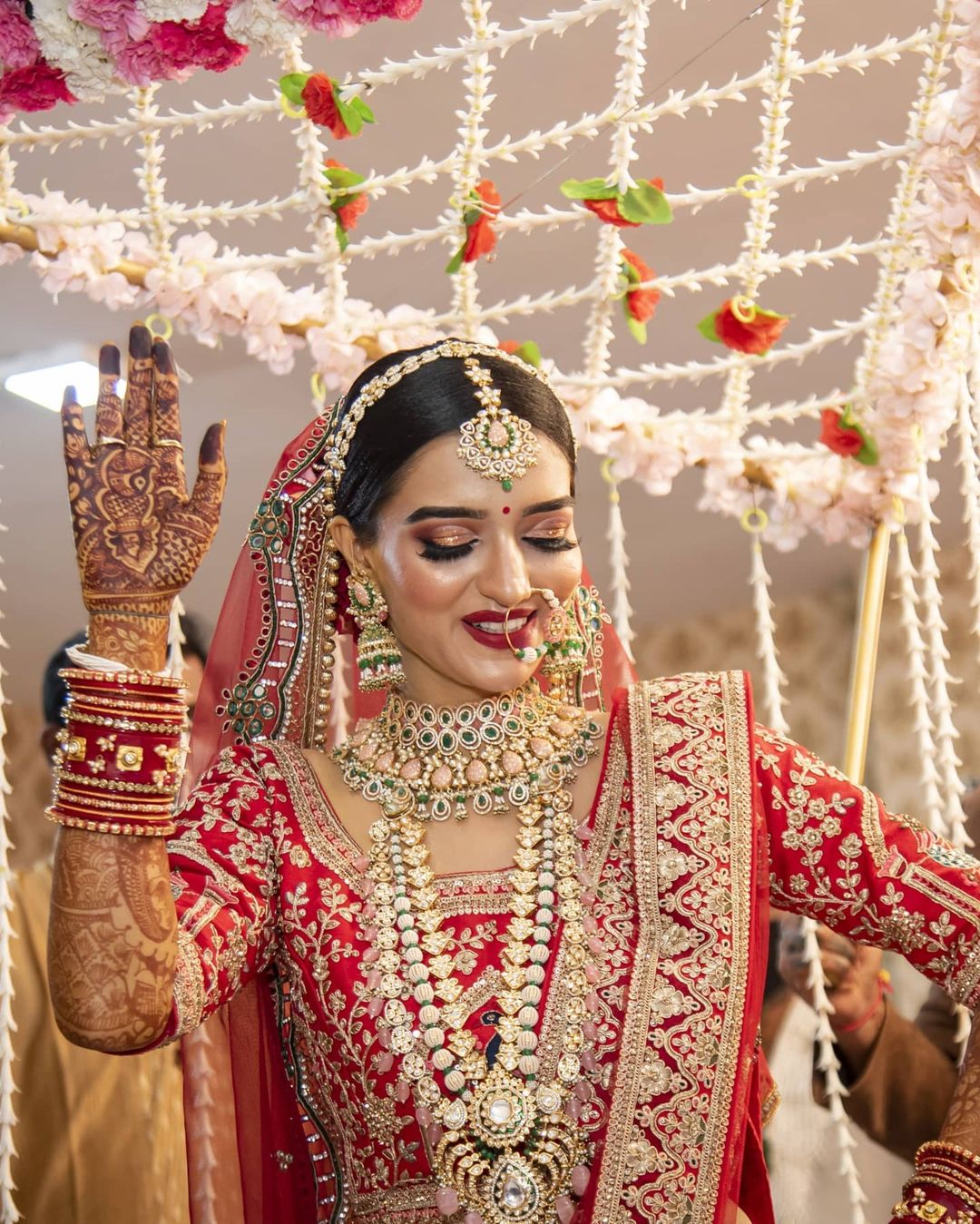
★★★★★
-
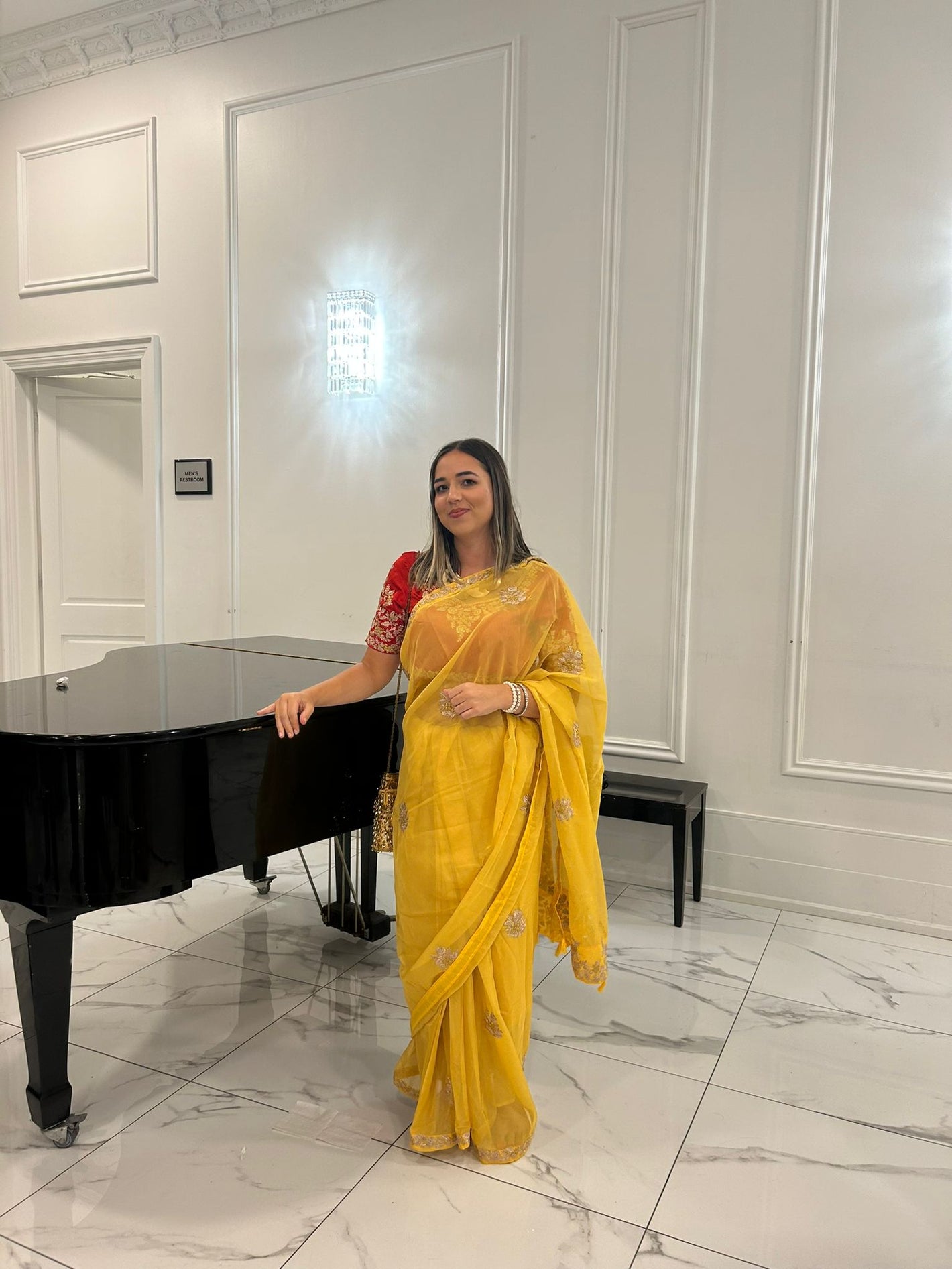
★★★★★
-
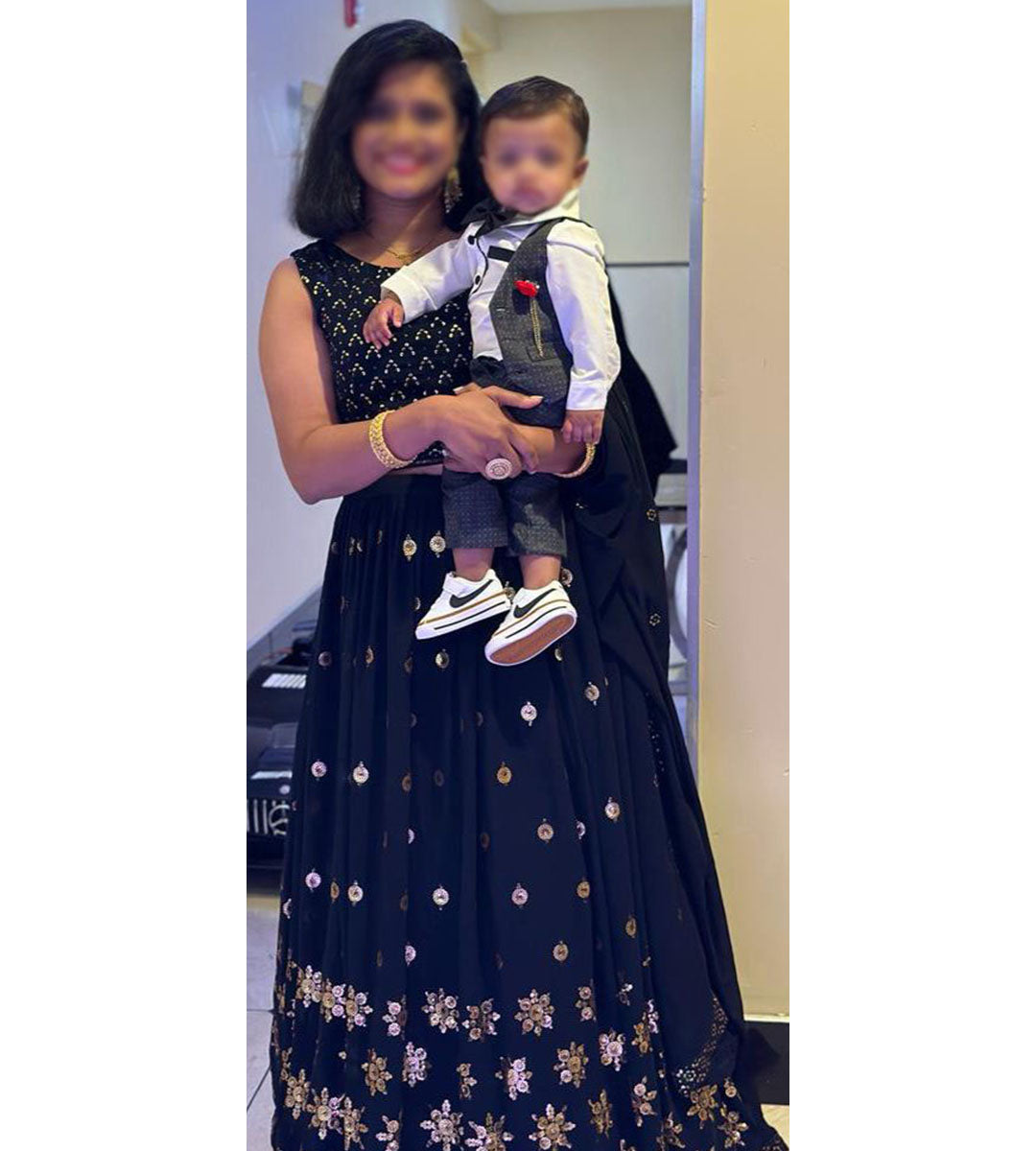
★★★★★
-
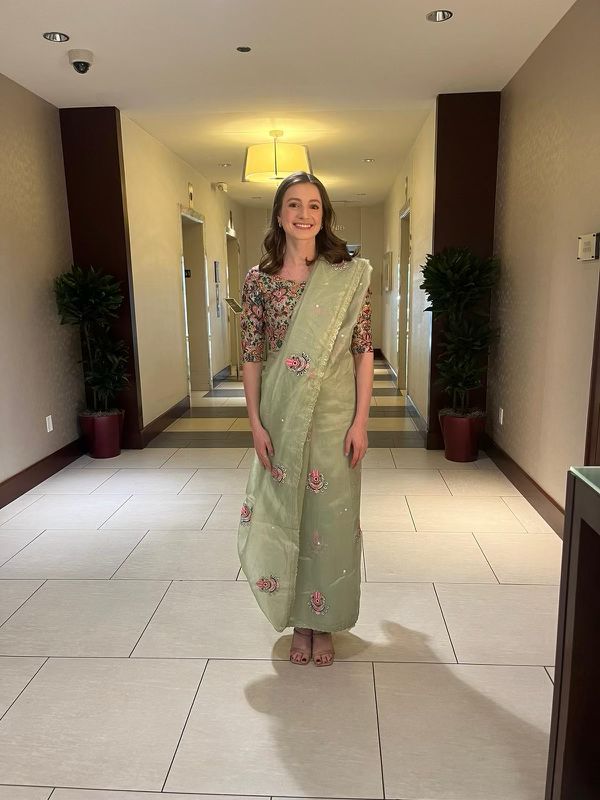
★★★★★
-
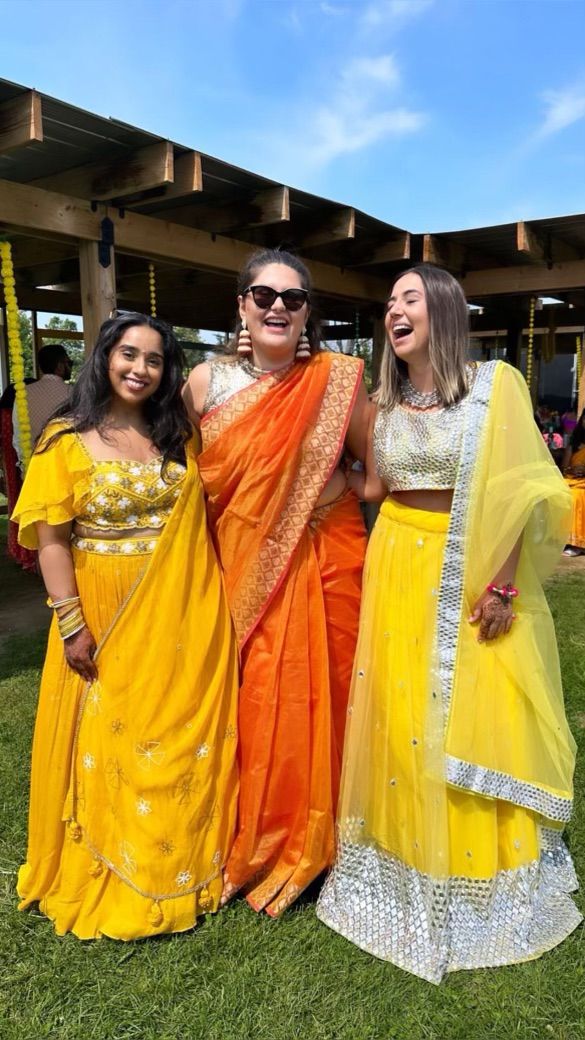
★★★★★
-
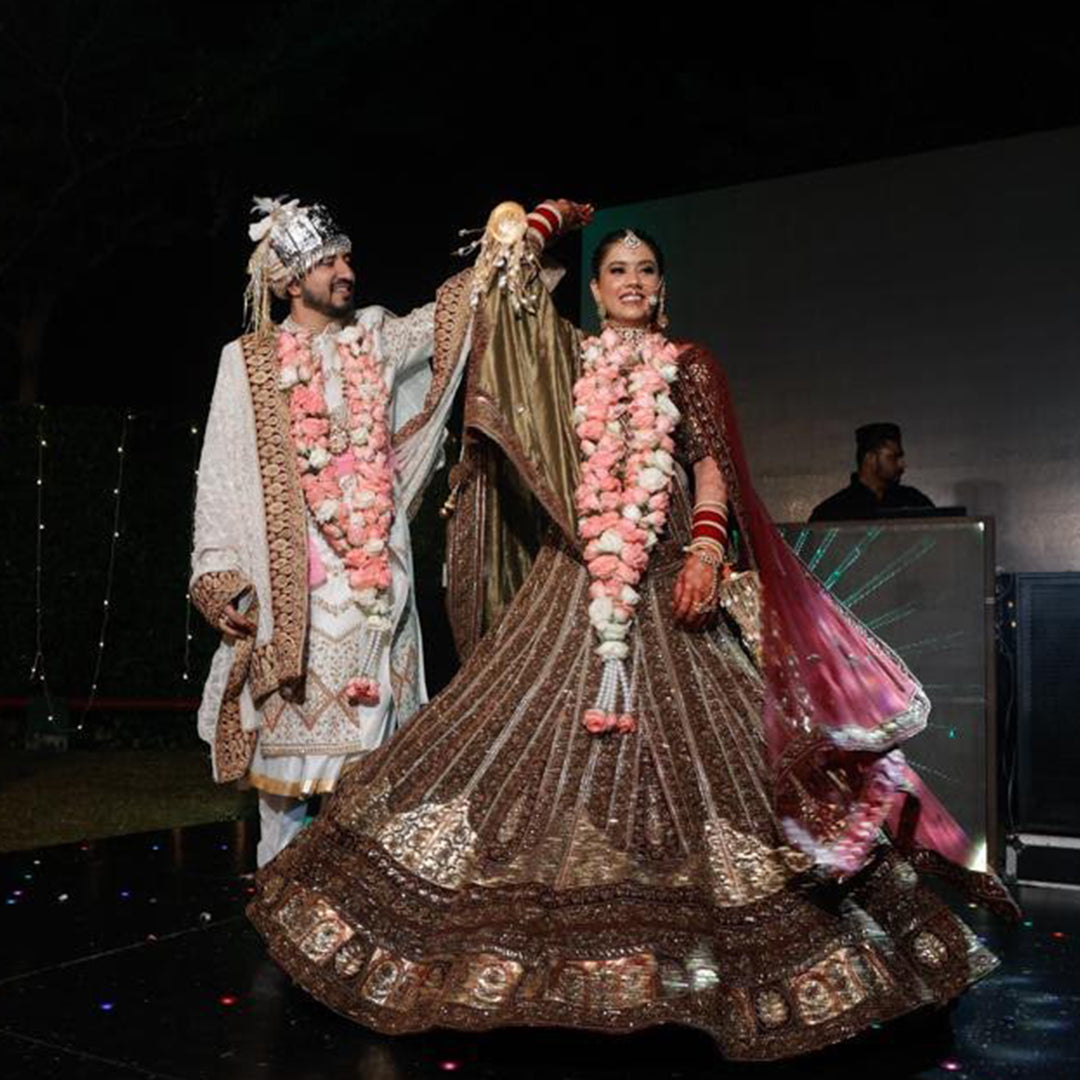
★★★★★
Collapsible content
About
